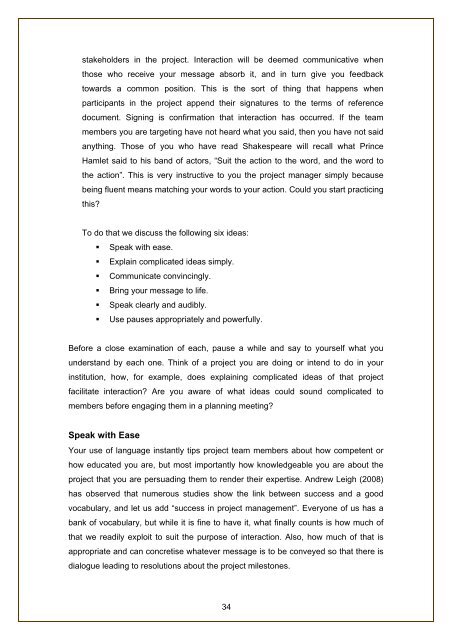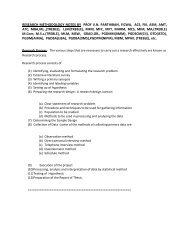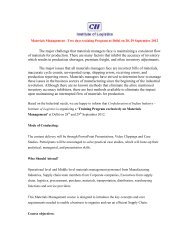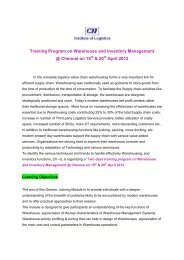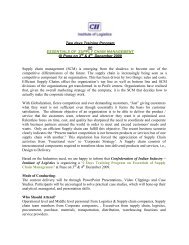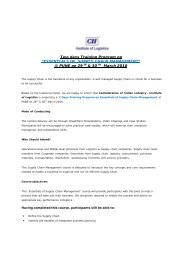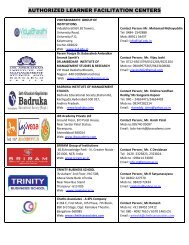successful project management - Commonwealth of Learning
successful project management - Commonwealth of Learning
successful project management - Commonwealth of Learning
Create successful ePaper yourself
Turn your PDF publications into a flip-book with our unique Google optimized e-Paper software.
stakeholders in the <strong>project</strong>. Interaction will be deemed communicative when<br />
those who receive your message absorb it, and in turn give you feedback<br />
towards a common position. This is the sort <strong>of</strong> thing that happens when<br />
participants in the <strong>project</strong> append their signatures to the terms <strong>of</strong> reference<br />
document. Signing is confirmation that interaction has occurred. If the team<br />
members you are targeting have not heard what you said, then you have not said<br />
anything. Those <strong>of</strong> you who have read Shakespeare will recall what Prince<br />
Hamlet said to his band <strong>of</strong> actors, “Suit the action to the word, and the word to<br />
the action”. This is very instructive to you the <strong>project</strong> manager simply because<br />
being fluent means matching your words to your action. Could you start practicing<br />
this?<br />
To do that we discuss the following six ideas:<br />
• Speak with ease.<br />
• Explain complicated ideas simply.<br />
• Communicate convincingly.<br />
• Bring your message to life.<br />
• Speak clearly and audibly.<br />
• Use pauses appropriately and powerfully.<br />
Before a close examination <strong>of</strong> each, pause a while and say to yourself what you<br />
understand by each one. Think <strong>of</strong> a <strong>project</strong> you are doing or intend to do in your<br />
institution, how, for example, does explaining complicated ideas <strong>of</strong> that <strong>project</strong><br />
facilitate interaction? Are you aware <strong>of</strong> what ideas could sound complicated to<br />
members before engaging them in a planning meeting?<br />
Speak with Ease<br />
Your use <strong>of</strong> language instantly tips <strong>project</strong> team members about how competent or<br />
how educated you are, but most importantly how knowledgeable you are about the<br />
<strong>project</strong> that you are persuading them to render their expertise. Andrew Leigh (2008)<br />
has observed that numerous studies show the link between success and a good<br />
vocabulary, and let us add “success in <strong>project</strong> <strong>management</strong>”. Everyone <strong>of</strong> us has a<br />
bank <strong>of</strong> vocabulary, but while it is fine to have it, what finally counts is how much <strong>of</strong><br />
that we readily exploit to suit the purpose <strong>of</strong> interaction. Also, how much <strong>of</strong> that is<br />
appropriate and can concretise whatever message is to be conveyed so that there is<br />
dialogue leading to resolutions about the <strong>project</strong> milestones.<br />
34


